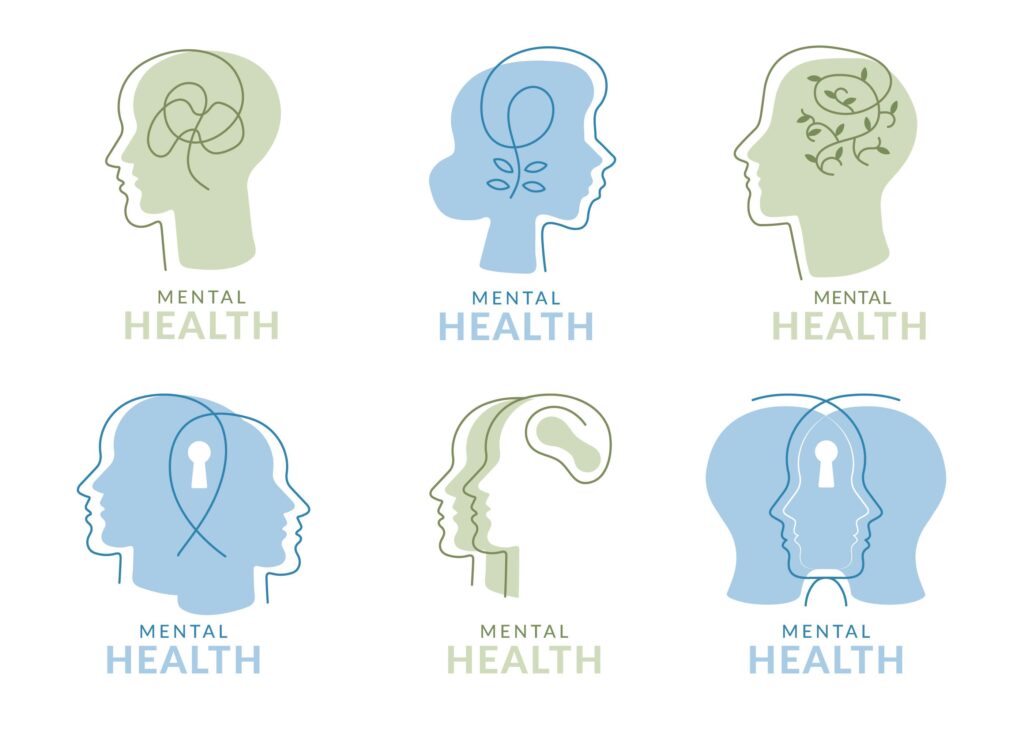
May is Mental Health Awareness Month (since 1949!). Mental health is critical to overall health—estimating that 1 in 5 adults live with a mental illness. Thankfully, we’re paying a lot more attention to mental health these days.
Does nutrition support mental health?
In the nutrition world, eating to benefit mental health is not a new idea. Over the years, scientists have studied the connections between diet and mental functioning. Food and mood. Nutrition to support brain development in children. Eating to boost focus and concentration. These are all popular topics of interest among consumers.
Diet can also complement various therapies for depression and anxiety, two conditions that are much more prevalent since the pandemic. And there’s a growing emphasis on diet to even help prevent certain mental disorders.
What kind of diet benefits mental health?
Food can impact mental health through many biological pathways, and scientists learn more all the time. In fact, there’s a relatively new area of study called nutritional psychiatry, to support mental wellbeing with diet-focused treatment. It only makes sense that particular types of foods and levels of nutrients promote brain-healthy physiological conditions. And conversely, certain nutritional deficiencies can be detrimental to our brains, nervous systems, and mental status. In general, there is scientific evidence that mental health is favorably impacted by diets that:
- Are high-quality—comprised of plenty of nutrient-dense foods
- Are plant-forward and feature an abundance of colorful produce items
- Include fish and seafood
- Follow the principles of the Mediterranean and DASH diets
- Are low in added sugars, sodium, and saturated fat
What foods are good for mental health?
There are quite a few foods that can help with brain function and mental health. Here are three of my favorites:
1. Fish and shellfish
Salmon, tuna, mackerel, lake trout, herring, and sardines. These fatty fish, along with oysters and mussels, provide essential omega-3 fatty acids. Omega-3s maintain brain cell health and foster neurological communication, and are associated with lower rates of depression. Supplementing with omega-3 fatty acids also shows promise for relieving depression. In addition, the omega-3 DHA is important for brain development and mental health throughout early childhood. And don’t forget, eating fish delivers many other nutritional benefits besides omega-3 fatty acids!
For general health, the current recommendation is 8 oz. of seafood per week (or two servings). If you need help cooking fish at home, check out these tips.
2. Fermented foods
Did you know that our brains and stomachs/intestines “talk” to each other? There is scientific evidence that fermented foods impact the brain and central nervous system via the gut and gut microbiome. Fermented foods are rich sources of health-promoting probiotics (learn more about them here). And while research is ongoing, there are already several potential reasons why fermented foods have such positive effects. For example, fermented foods increase the availability of bioactive food components, and also modify the release of neurotransmitters (nervous system chemical signals). Some fermented foods, such as dairy products like kefir, are a source of the amino acid tryptophan. The body uses tryptophan to produce serotonin, a mood-supporting hormone.
Not all probiotic-containing foods are fermented, but three places to find fermented foods in your store are:
- The dairy aisle (kefir, aged cheese that hasn’t been heated)
- The produce department (miso paste, tempeh, sauerkraut, and kimchi that haven’t been heat-processed)
- Chilled beverages near the produce department (kombucha and vinegar-based beverages that haven’t been heat-processed). Guiding Stars’ beverage guidance credits for the presence of live probiotic cultures in beverages.
In the not-too-distant future, we’ll likely learn much more about which fermented foods are most effective in supporting mental health.
3. Berries
Tiny berries can have big health benefits! Two areas where they really shine? Helping with brain function and fighting against neurodegeneration.
Many studies have looked at the mental benefits of berries and their components. Berries contain natural compounds called polyphenols, several of which researchers believe boost brain function and mental health. (These include anthocyanins and flavan-3-ols, among others.) How do they do it? For one, polyphenols counteract the effects of oxidative stress on the brain. They also improve signaling in the brain cells.
While the Mediterranean and DASH diets both advocate fruit, only the MIND specifically calls out berries—recommending two servings per week. Need ideas for getting more berries into your diet? We’ve got you, check them out here.
The food industry is paying attention to mental health, too
Surveys indicate that consumers have a growing interest in supporting their emotional and mental health with their food choices. We’re looking for foods that boost our mood, decrease our stress levels, and support good sleep. Keep in mind, however, there are no FDA-approved health claims for foods related to mental health. So the best plan to feed your brain and aid your mental health is a healthy, balanced diet overall. Guiding Stars can help! In fact, helping you choose the most nutritious foods for you and your family is our reason for being.